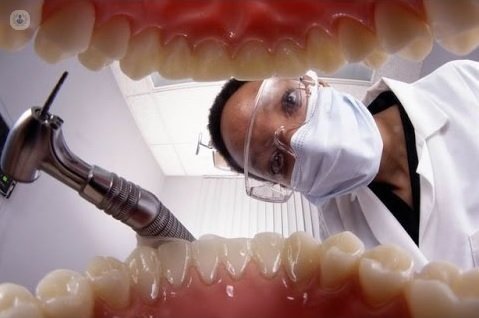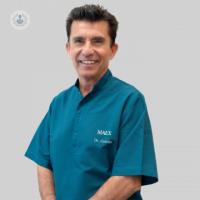Dental phobia, a fear common than we think
Written by:Dental phobia is fear or panic to the clinic or dental treatments. The causes can be many: fear of being hurt, panic needles or rejection of the smells and sounds of the clinic because reminiscent of previous traumatic episodes. It is advisable to work together between dentist and patient to find the most comfortable way to avoid anxiety.

Dental phobia: what it is
This is a more frequent occurrence than it looks. It is fear or panic to the dental clinic or dental. Much of the population does not go to the dental clinic, because I think it only generates anxiety. It is a vicious circle: avoid dental treatment leads to a deterioration of dental health with tooth loss, and this in a sense of guilt and anxiety that reinforces, often because of shame, the attitude of avoiding going to the dentist.
Causes of dental phobia
There can be many causes: the fear that hurts treatment, panic needles or rejection to the sounds and smells of the dental clinic, which can bring bad memories of traumatic past experiences. Other times there is previous memories, but the unknown and fear of losing control.
How you can help a dentist in dental phobia?
Today modern dental clinics create more friendly environments and all staff concerned to accompany the patient and make you have a pleasant experience. Of course the first thing is to know placed where phobic patient and understand your problem.
Methods or therapy in dental phobia
In each person the method is different, depending on which is the phobia:- Pain- To the needles- The uncertainty of what they will do- The economic cost that may involve
All expert staff Dentistry clinic is well aware of the fear felt by patients when they go to consultation and are formed to face.
Sometimes just a relaxation session as treatment. Antianxiety agents, such as nitrous oxide, or sedatives can also help you relax during dental visits and often can be used in conjunction with local anesthetics. Dentists can also use these agents to induce conscious sedation in the patient reaches a relaxed state during treatment. Sedatives can be administered orally, by inhalation or by injection before, during or after dental procedures.In very specific cases patients undergoing general anesthesia, in which drugs cause temporary loss of consciousness. Deep sedation and general anesthesia are recommended for certain procedures in children or in patients who have severe anxiety or who have difficulty controlling their movements.
Do you get that patient access to dental phobia go to see?
No doubt it is achieved by mutual cooperation. Today we pay much attention to the patient knows the variety of options available to relieve anxiety and discomfort that you are well informed. It is important to talk to your dentist, explaining each step, and always with a simple and sincere language. Working together, you and your dentist can choose the appropriate steps to make your dental visit as safe and comfortable as possible.
Edited by Patricia Crespo Pujante


